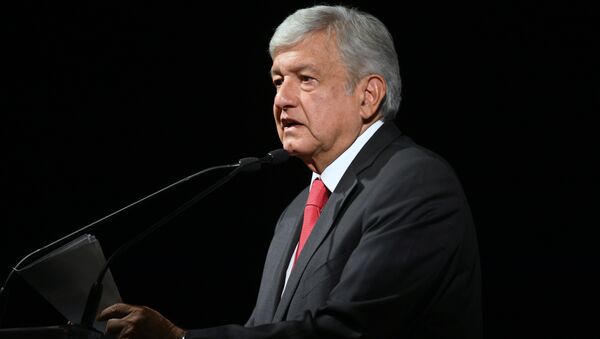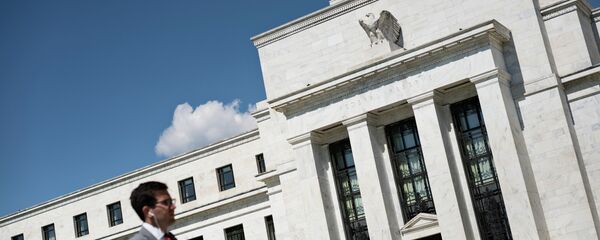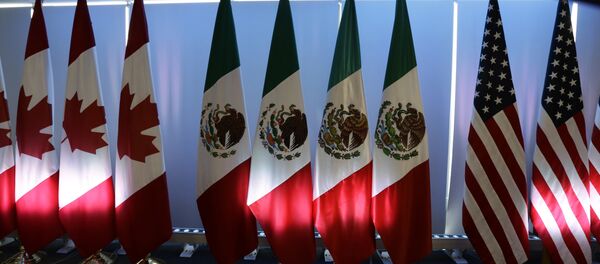Kristian Rouz — Mexican President Andres Manuel Lopez Obrador has called for greater competition between the nation's financial institutions, saying that it could bring down the cost of banking services and boost consumer demand in the country.
Speaking at a banking summit in Acapulco, Mexico, Lopez Obrador said his government could streamline the issuance of banking licenses to financial institutions, and loosen the regulatory framework in the financial sector.
According to government estimates, millions of Mexicans still don't have bank accounts, which limits their access to financial services and consumer loans. Mexican officials have been pushing for a greater involvement of the population in the so-called 'formal economy', suggesting a greater number of bank accounts could spur consumer lending in the country, which would boost the services sector and broaden GDP growth.
This comes after reports revealed that the Mexican economy slowed in 4Q18 due to the government's new austerity measures aimed at cutting fiscal spending and boosting the efficiency of public finances. Additionally, international trade tensions, the slow implementation of the new USMCA trade accord with the US and Canada, and oil sector woes have all contributed to the slowdown.
The government data suggests Mexico's economy grew 0.2 percent quarter-on-quarter in the last three months of 2018, while annual growth stood at 1.7 percent in the fourth quarter. In 2018, the Mexican economy expanded 2.0 percent.
Lopez Obrador's party introduced a bill in the Mexican Congress last year which would limit banking services fees. The move sparked a sell-off in banking shares in the country, while the President distanced himself from the initiative.
He also stressed his government would not change the legal or regulatory framework in the financial sector in the coming months, suggesting, however, that some onerous regulations could be removed to boost loan issuance in the country — which would, in turn, support GDP expansion.
For his part, president of the Mexican banking association Luis Nino de Rivera said many banks in the country are imposing 'self-regulation' on their lending practices.
Nino de Rivera suggested banks could increase loan issuance under the existing rules, but he also pointed out that the government could abolish fees for digital accounts — which could potentially benefit younger Mexicans.
For its part, international credit rating agency Fitch said Mexico is facing mounting international and domestic headwinds to its economic expansion this year. The agency's analysts said they expect Mexico's GDP to grow by just 1.6 percent this year — down from the 2.1 percent expected previously.
Fitch said Mexico's declining oil output, crumbling infrastructure, and a drop in budget spending would all weigh on the pace of economic expansion this year.
However, Lopez Obrador appears to be more optimistic regarding the economy this year. The President suggested easier loan issuance rules would encourage consumer spending, and drive a quicker expansion in the services sector. This as, according to Fitch, Mexico's job creation has slowed at the end of 2018.
Meanwhile, Mexico's businesses are facing rising uncertainty as well. Lopez Obrador's left-wing policies are seen as hardly encouraging business spending plans this year, while many of his initiatives have been deemed 'excessive regulation'.
In this light, both the Mexican central bank and US-based investment bank Goldman Sachs have downgraded their outlook on the nation's GDP growth this year as well.
While discussions over the future of Mexico's financial regulations are underway, Fitch experts believe the government should make steps to reassure businesses and investors in order to boost capital expenditures in the country. Additionally, some experts say Mexico could allocate more of its fiscal spending towards updating its infrastructure, including oil pipelines.
It is still unclear whether Lopez Obrador's plans to support consumer demand through credit expansion will help bring Mexico's economy back on track.





